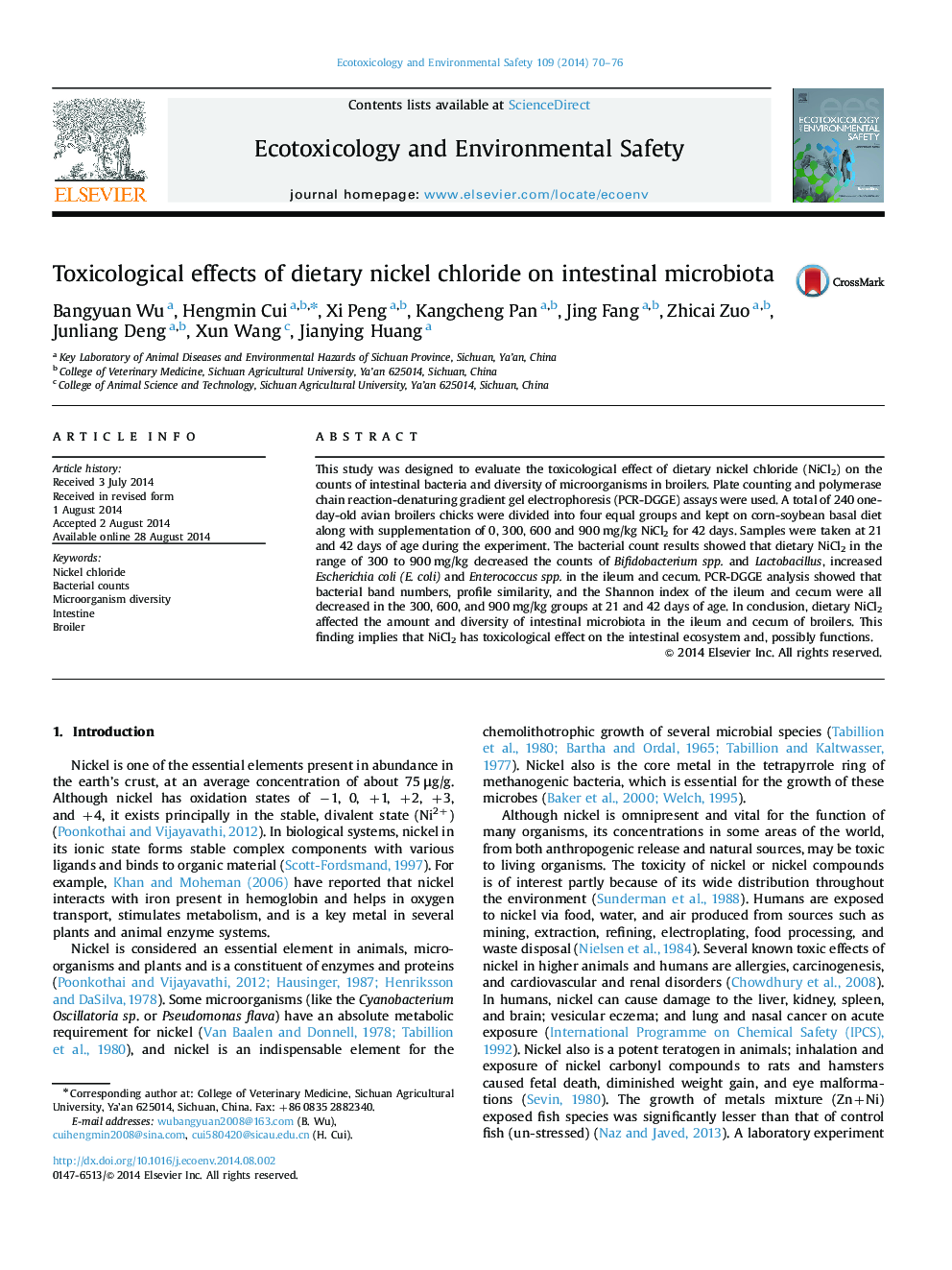| Article ID | Journal | Published Year | Pages | File Type |
|---|---|---|---|---|
| 4419999 | Ecotoxicology and Environmental Safety | 2014 | 7 Pages |
•Toxic effect of NiCl2 on microbiota in the intestine is firstly evaluated.•Dietary NiCl2 reduced diversity of intestinal microbiota.•NiCl2 has toxicological effect on the intestinal ecosystem and, possibly functions.
This study was designed to evaluate the toxicological effect of dietary nickel chloride (NiCl2) on the counts of intestinal bacteria and diversity of microorganisms in broilers. Plate counting and polymerase chain reaction-denaturing gradient gel electrophoresis (PCR-DGGE) assays were used. A total of 240 one-day-old avian broilers chicks were divided into four equal groups and kept on corn-soybean basal diet along with supplementation of 0, 300, 600 and 900 mg/kg NiCl2 for 42 days. Samples were taken at 21 and 42 days of age during the experiment. The bacterial count results showed that dietary NiCl2 in the range of 300 to 900 mg/kg decreased the counts of Bifidobacterium spp. and Lactobacillus, increased Escherichia coli (E. coli) and Enterococcus spp. in the ileum and cecum. PCR-DGGE analysis showed that bacterial band numbers, profile similarity, and the Shannon index of the ileum and cecum were all decreased in the 300, 600, and 900 mg/kg groups at 21 and 42 days of age. In conclusion, dietary NiCl2 affected the amount and diversity of intestinal microbiota in the ileum and cecum of broilers. This finding implies that NiCl2 has toxicological effect on the intestinal ecosystem and, possibly functions.
Graphical abstractFigure optionsDownload full-size imageDownload as PowerPoint slide
